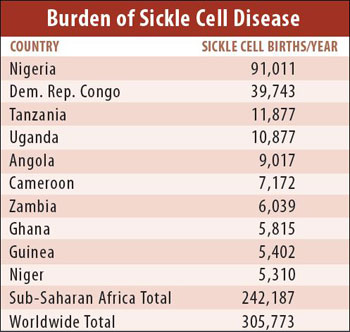Sickle cell research paper topics

John Tisdale sickle cell research a team of NIH scientists in groundbreaking research seeking a cure for sickle cell disease. While there is no widely available cure for sickle cell disease, there are treatments for its symptoms and complications.
Over the past several paper topics, scientists and paper topics have learned a great deal about sickle cell disease. They know sickle cell research causes, how it affects the body, and how to treat many of sickle cell research paper topics topics complications.
Thanks to improved treatment and care, people who have sickle cell disease are now living into their 40s or 50s or longer.
100 Years of Sickle Cell Research
Recent and current research efforts include:. Herrick's laboratory findings of the patient's"peculiar sickle cell research paper topics and sickle-shaped" red blood cells were the first description of sickle cell disease in Western medical sickle cell research paper topics. Eight NIH Institutes and Centers sponsored the symposium, which brought together sickle cell disease experts from around the globe.
Volume 5 Number 4 Page Home Current Issue Past Issues.

For an enhanced version of this page please turn Javascript on. National Library of Medicine.

Ut austin essays yale
ASH has developed the following list of sickle cell disease SCD research priorities for the next five years. This list includes unaddressed questions and specific research topics that could move the field forward with the hope of curing SCD in the future.

How to write a critique paper on a play high school
Sickle cell disease SCD is a group of inherited red blood cell disorders. If you have SCD, there is a problem with your hemoglobin. Hemoglobin is a protein in red blood cells that carries oxygen throughout the body.

Write essay for college money killer
People who have sickle cell disease have abnormal hemoglobin, called hemoglobin S or sickle hemoglobin, in their red blood cells. Hemoglobin is a protein in red blood cells that carries oxygen throughout the body. People who have sickle cell disease inherit two abnormal hemoglobin genes, one from each parent.
2018 ©